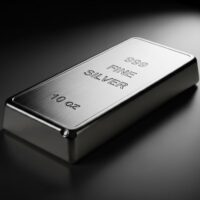Coffee is one of the most popular beverages in the world, enjoyed by millions for its rich flavor and stimulating effects. One of the main reasons people reach for their daily cup is caffeine, a natural stimulant that can boost energy, improve focus, and elevate mood. But how much caffeine is actually in a cup of coffee? The answer isn’t as straightforward as you might think.
The amount of caffeine in a cup of coffee can vary greatly depending on several factors, such as the type of coffee bean, brewing method, serving size, and even the brand of coffee. This detailed guide will explore these factors to give you a clearer understanding of how much caffeine you’re consuming and how it might impact your health.
What Is Caffeine?
Caffeine is a natural stimulant found in coffee beans, tea leaves, and other plants. It belongs to a group of compounds known as xanthines, which stimulate the central nervous system and increase alertness. Caffeine blocks adenosine, a neurotransmitter that promotes sleep, leading to increased energy and wakefulness. It’s also found in various other beverages and foods, including tea, soda, energy drinks, and chocolate.
Average Caffeine Content in a Cup of Coffee
On average, an 8-ounce (240 mL) cup of brewed coffee contains 95 mg of caffeine. However, this can range anywhere from 30 to 200 mg per cup, depending on factors such as bean type, brewing time, and coffee strength. Here’s a breakdown of the main variables:
Factors That Affect Caffeine Content
1. Type of Coffee Bean
There are two main species of coffee beans used in commercial coffee production: Arabica and Robusta.
- Arabica beans typically contain less caffeine, with around 1.2% caffeine content.
- Robusta beans have nearly double the caffeine, with around 2.2–2.7% caffeine content.
If your coffee is made with Robusta beans, you can expect a significantly higher caffeine content compared to Arabica.
2. Brewing Method
The brewing method has a substantial impact on caffeine levels. Here’s how different methods stack up:
- Drip-brewed coffee (regular brewed coffee using a coffee maker): Around 95 mg per 8-ounce cup.
- Espresso: A single shot (1 ounce) contains about 63 mg of caffeine, but because it’s more concentrated, it packs more caffeine per ounce than regular coffee.
- French Press: Similar to drip coffee but may have slightly higher caffeine levels due to longer steeping times, usually around 80–100 mg per 8 ounces.
- Cold Brew: Because cold brew is steeped for longer periods (usually 12–24 hours), it tends to have a higher caffeine concentration. An 8-ounce serving can contain anywhere from 150 to 240 mg of caffeine.
- Instant Coffee: Made from dried coffee extract, instant coffee generally contains 30–90 mg of caffeine per 8-ounce cup, depending on the brand and preparation strength.
3. Serving Size
The standard coffee serving size is 8 ounces, but many coffee drinks, especially those sold in cafes, come in much larger sizes. A 12-ounce (Tall) coffee from Starbucks, for instance, contains more caffeine than an 8-ounce home-brewed cup. Larger servings naturally contain more caffeine, so keep an eye on your portion size.
4. Roast Level
It’s a common misconception that darker roasts have more caffeine than lighter ones. In reality, lighter roasts tend to have slightly more caffeine because the beans are less processed during roasting. However, the difference is minimal.
- Light roast coffee retains more of the bean’s natural caffeine content, but the variation is slight.
- Dark roast coffee may taste stronger but often contains less caffeine per ounce because the beans lose mass during the roasting process.
Caffeine Content by Coffee Type
Here’s a breakdown of the average caffeine content in various coffee drinks:
- Brewed Coffee (Drip or Filtered): 95 mg per 8-ounce cup (240 mL)
- Espresso: 63 mg per 1-ounce shot (30 mL)
- Americano (Espresso diluted with water): Same caffeine content as an espresso shot per ounce but can range based on serving size.
- Cold Brew: 150–240 mg per 8-ounce cup (240 mL)
- Instant Coffee: 30–90 mg per 8-ounce cup (240 mL)
- Decaf Coffee: Despite the name, decaffeinated coffee is not completely caffeine-free. It usually contains 2–5 mg of caffeine per 8-ounce cup.
How Much Caffeine Is Safe?
The U.S. Food and Drug Administration (FDA) considers 400 mg of caffeine per day to be a safe amount for most adults, which is roughly the equivalent of four 8-ounce cups of brewed coffee. However, individual tolerance can vary, and factors like age, weight, and sensitivity to caffeine can influence how much you can comfortably consume.
- Pregnant women are advised to limit caffeine intake to 200 mg per day (about 1–2 cups of coffee) due to potential risks to the baby.
- People with anxiety disorders, heart conditions, or sleep problems may also need to limit caffeine, as it can exacerbate symptoms.
Exceeding the recommended daily limit can lead to side effects such as jitteriness, insomnia, rapid heart rate, and digestive issues.
Health Benefits of Caffeine
In moderation, caffeine offers a variety of health benefits, including:
- Improved mental focus and alertness: Caffeine is well-known for its ability to boost cognitive function and mental clarity.
- Increased physical performance: Caffeine can enhance endurance and strength during workouts.
- Reduced risk of certain diseases: Some studies suggest that moderate coffee consumption may lower the risk of diseases such as Parkinson’s, Alzheimer’s, and type 2 diabetes.
Potential Side Effects of Too Much Caffeine
While caffeine has many benefits, too much can lead to negative side effects:
- Insomnia: High caffeine intake, especially later in the day, can interfere with sleep patterns.
- Jitters or anxiety: Caffeine is a stimulant, and overconsumption can lead to feelings of nervousness, restlessness, or anxiety.
- Digestive issues: Caffeine can stimulate the digestive system, sometimes causing acid reflux or upset stomach.
If you experience these side effects, consider cutting back on your caffeine intake or switching to a lower-caffeine option like decaf coffee or herbal tea.
Caffeine Comparison: Coffee vs. Other Beverages
Coffee isn’t the only source of caffeine in our diets. Here’s how the caffeine in an 8-ounce cup of coffee compares to other popular caffeinated beverages:
- Black Tea: 40–70 mg per 8-ounce cup
- Green Tea: 30–50 mg per 8-ounce cup
- Soda (Cola): 30–40 mg per 12-ounce can
- Energy Drinks: 70–200 mg per 8-ounce serving
Conclusion
The amount of caffeine in a cup of coffee can vary widely depending on factors like the type of coffee bean, brewing method, and serving size. On average, an 8-ounce cup contains about 95 mg of caffeine, but this can range from as low as 30 mg to as high as 240 mg, depending on how the coffee is prepared.
Understanding the caffeine content in your coffee can help you make more informed choices about how much you’re consuming and whether it’s within the recommended limits for your health and well-being. Whether you’re a casual coffee drinker or a caffeine enthusiast, moderation is key to reaping the benefits of coffee without the side effects.












